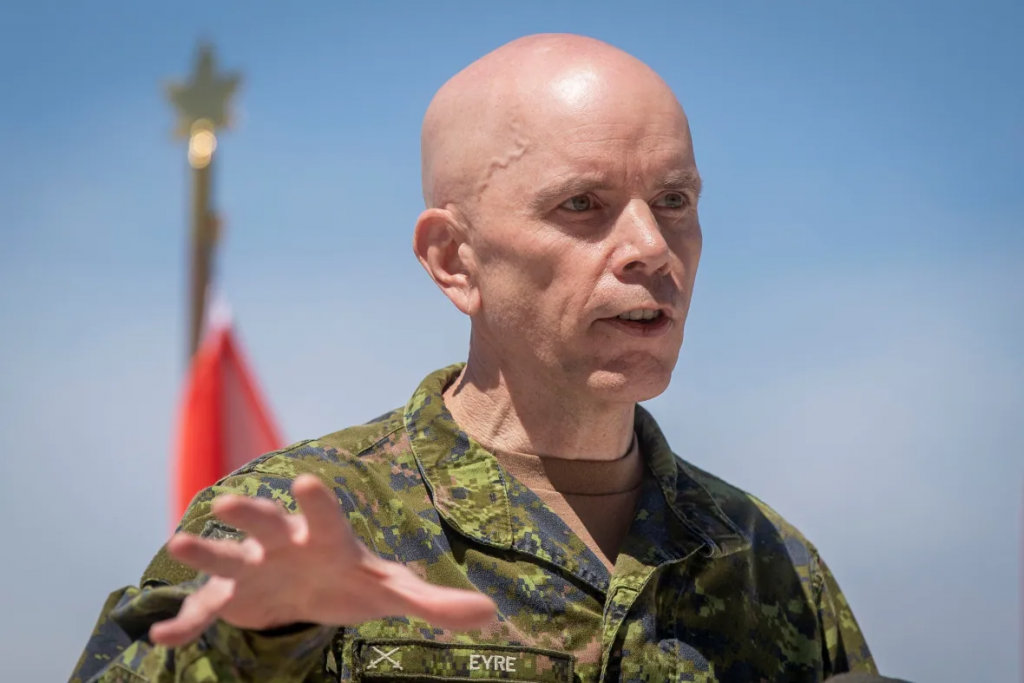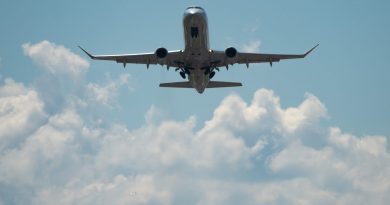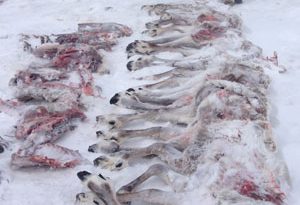Canada needs ‘goals, a plan and resources’ for Arctic, says expert

· The Canadian Press
‘Russia’s brutal war in Ukraine has made this co-operation in the Arctic virtually impossible’
Canada’s allies are calling for a rethink in Arctic relations after Russia’s invasion of Ukraine.
“We are only an accident or an incident or a misinterpretation away from escalating things quite quickly,” said University of Manitoba international relations professor Andrea Charron.
This month, Washington updated its Arctic strategy, which includes an increased military presence in the Far North.
“The United States values the unique spirit of international co-operation that has generally characterized the Arctic since the end of the Cold War,” reads the new strategy.
“Russia’s brutal war in Ukraine has made this co-operation in the Arctic virtually impossible.”
Finland, Sweden’s ascension to NATO alliance ‘will change dynamic’
In a call with reporters, Washington’s top foreign-policy adviser noted that Russia has been spending billions of dollars modernizing military bases, buying icebreakers and testing new weapon systems.
Derek Chollet, counsellor with the U.S. State Department, said Finland and Sweden’s ascension to the NATO alliance will change the dynamic.
“A significant amount of territory … will now be covered in the Arctic region under NATO’s Article 5, the mutual self-defence clause. So it will be a fundamental shift in the thinking for the alliance,” he said.
Last week, the Finnish government released a study it commissioned on how the war in Ukraine changes the Arctic policy it released the year before.
The report argues a new Cold War is underway and Finland needs to try to keep a “functioning relationship” with neighbouring Russia on matters like the environment and Indigenous Peoples, but must see everything through a security lens.
‘Everybody’s trying to be particularly careful’
“There will be no return to the pre-war reality,” reads the report’s English summary. “Even chaos is possible.”
This month, Russia issued its own document on Arctic relations, and stressed its refurbishment of military infrastructure is meant to shore up its national security and search-and-rescue capability for resource extraction projects.
“There is no serious potential for conflict in the Arctic, especially with the participation of Russia,” reads the Russian-language document.
“Russian security policy in the Arctic is transparent. We do not threaten anyone in this region.”
Despite the rising rhetoric, Charron said all Arctic nations, including Russia, seem to be steering away from sabre-rattling.
“Everybody’s trying to be particularly careful,” she said.
She noted that Moscow jammed GPS systems and had its jets buzzing ships during NATO’s 2018 exercises, but during similar drills in Norway this May, Russia seemed to be moving carefully.

On Monday, Norad intercepted Russian jets near Alaska in international airspace. Norad command said the move was “not seen as a threat, nor is the activity seen as provocative.”
Charron said Russia relies on northern gas and oil extraction for a substantial amount of economic output, and it wants foreign ships to use a northern passage that could reinvigorate remote towns.
“They benefit most when the Arctic has a rules-based, international order,” she said.
That’s become increasingly difficult since Russia’s invasion of Ukraine, which put the Arctic Council on hiatus.
The intergovernmental forum is meant to co-ordinate research, shipping routes and search-and-rescue services among the eight circumpolar countries as well as Indigenous nations.
Russia currently chairs the council, but the other seven members halted participation in March, instead having informal meetings on the side.
While Finland argues this is not viable, Chollet noted that “anywhere from 60 to 75 per cent of the Arctic Council’s projects — and this includes areas like education, fisheries, things of that nature — can occur without Russia being involved.”
“We also have to be realistic, given Russia’s behaviour in Ukraine and around the world, that we’re going to see limited possibility for co-operation with Russia in the Arctic Council,” he said.
Russia’s foreign ministry argues that is unnecessarily provocative.
“Washington, with the support of other westerners, especially the Russophobic officialdom in Ottawa, is trying to isolate Russia without whose participation co-operation in the Arctic is impossible,” spokeswoman Maria Zakharova said in Russian last week.

Meanwhile in Ottawa, the House defence committee heard Tuesday from defence chief Gen. Wayne Eyre, who said Canada needs to invest in the North for the future.
“We don’t see a clear and present threat to our sovereignty; not today, not this week, not next week, not next year,” he said.
“However, in the decades to come, that threat, that tenuous hold that we have on our sovereignty at the extremities of this nation, is going to come under increasing challenge.”
This month, the Liberals had Gov. Gen. Mary Simon attend a major Arctic conference, at which security was a frequent topic. Simon was instrumental in crafting the Arctic Council in the 1990s and wrote the precursor to Canada’s northern framework.
Canada needs a plan, says Charron
In August, Prime Minister Justin Trudeau and NATO Secretary-General Jens Stoltenberg visited Cambridge Bay, Nunavut.
It was the first time the head of the military alliance has been in Canada’s Arctic, which Charron said was meant to symbolize Ottawa’s steadfast support of its allies.
Yet she doesn’t expect NATO to have a large presence in the Canada’s North, with the alliance primarily focused in the European Arctic and Norad’s systems helping to monitor Russia’s air sorties.
Putting NATO ships in Canada’s backyard would be seen as too provocative to Russia, given it sits less than 100 nautical miles away. Canada sees the Northwest Passage as part of its domestic waters, and hasn’t requested NATO protection.
Charron said if Canada wants to be a serious player in the region it needs goals, a plan and resources.
“We don’t really have an Arctic policy; we have a framework, which to me is a prelude to a strategy,” she said.
“We’ve always kind of been flying by the seat of our pants.”
Related stories from around the North:
Canada: Senate committee studying Arctic security in response to int’l interest in region, CBC News
Finland: No return to pre-war reality when it comes to Arctic cooperation, says Finnish rep, Eye on the Arctic
Greenland: Greenland, Iceland sign cooperation agreement in Reykjavik, Eye on the Arctic
Iceland: Canada’s GG among keynote speakers at Arctic Circle Assembly, Eye on the Arctic
Norway: Norway limits access for Russian fishing trawlers in security push, Thomson Reuters
Russia: Newly deployed nuke-bombers at Kola is certainly a signalling, expert says, The Independent Barents Observer
United States: China, Russia among global priorities, including in Arctic, in U.S. security strategy, Eye on the Arctic



